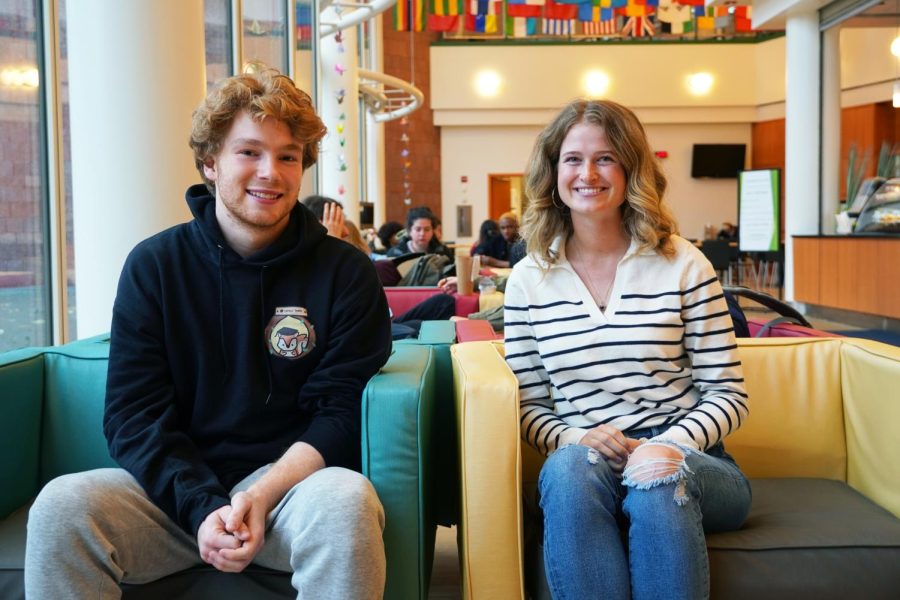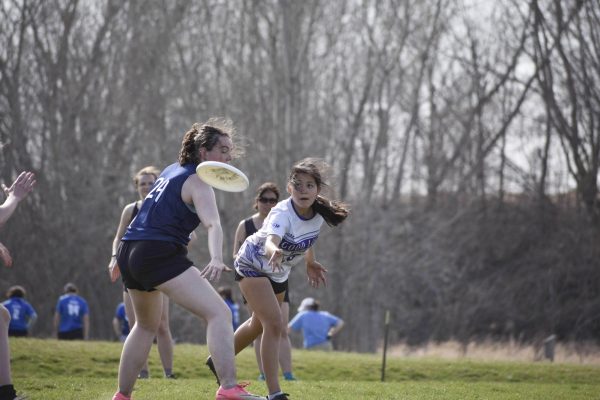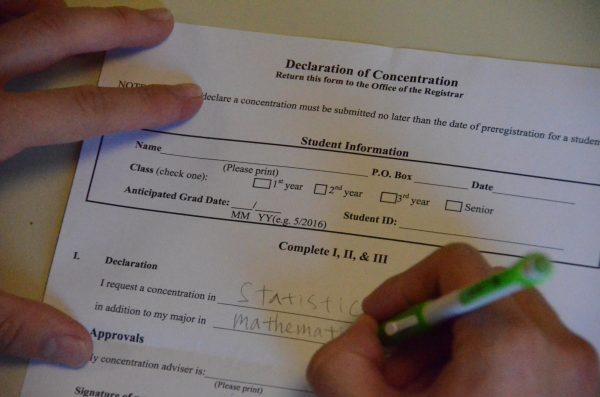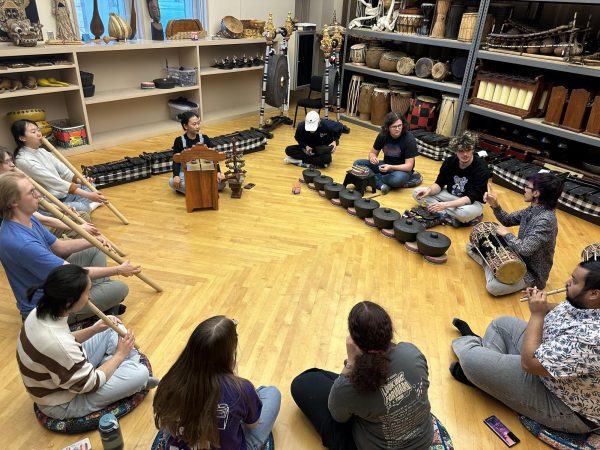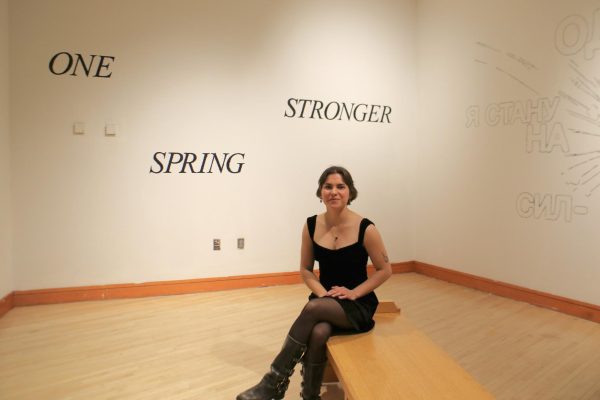Two Grinnell students certified to offer bystander training
Dean Mazlish `23 (left) and Lexi Mueldener `23 (right) can now offer bystander training to fellow students.
November 7, 2022
Dean Mazlish `23 and Lexi Mueldener `23 have recently been receiving training to provide active bystander training to students on campus, marking the first time active bystander training can be administered by fellow students instead of through the Title IX office, which currently offers the training.
Active bystander training is mandatory for all student-athletes, and all students get a brief insight into it during New Student Orientation ahead of their first year at the College. As presidents of Grinnell’s Student-Athletes Leading Social Change Committee (SALSCC), Mazlish and Mueldener now seek to make this training more in-depth and widely available on campus.
Mueldener defines active bystanding as “students in situations where they need to assume responsibility for someone else in a potentially harmful situation.”
“Say you’re at a party and you notice your friend is overly intoxicated. You, as an active bystander, can step in and say, ‘hey let’s go get a snack’ in order to diffuse the tension in the situation and avoid having it escalate further,” she said.
Mazlish also said being an active bystander can “just mean something as simple as helping a prospective student that doesn’t know where they’re going.”
The idea for increased active bystander training came to the attention of Mazlish and Mueldener last year. SALSCC puts on an event each year for sexual assault awareness that ends with a town hall meeting.
“Last year we had around 300 people come out to this meeting. Anyone can share their thoughts, especially regarding concrete ideas about things they want to see change. Something that came up was this idea of active bystander training, and it was brought to their attention that this was something students really wanted,” Mazlish said.
From this, both Mazlish and Mueldener realized the importance of the training and started working closely with Jennifer Jacobsen, a previous Grinnell faculty member and current director of sexual violence prevention at Macalester College.
Mazlish also noted that Paige Oluwu, a deputy in Grinnell College’s Title IX office, has been working closely with them. Oluwu currently provides active bystander training that is mandatory for student-athletes. The hope is that the Title IX office will continue to do the training they offer and that the training offered by the students will be supplementary for any additional groups that would like it, according to Mazlish.
To be able to have a campus that’s entirely aware of the importance of bystanderism and is willing to assume responsibility to help protect one another is extremely important.
— Lexi Mueldener `23
Mazlish and Mueldener said they plan on starting their training with athletes who have already received the training from the Title IX office.
According to Mueldener, “The training processes we’ll be offering will initially be just preliminary ones to help us get our groundings on how to facilitate a training.”
They said they hope it would allow them to get a proper assessment of the merits of the training they offer in comparison with the training offered by the Title IX office.
“From there, we’d move on to training for different organizations, including our own, and then finally, I think the end goal would be that we have open meetings where people can sign up and you can come in and get trained,” Mueldener said.
Mueldener and Mazlish both said they hope to make the training personalized to each organization and provide learning scenarios that would pertain to possible issues that arise in each organization.
“To be able to have a campus that’s entirely aware of the importance of bystanderism and is willing to assume responsibility to help protect one another is extremely important,” Mueldener said. “Active bystander training can be a great aid in reducing the risk of harmful incidents occurring on campus.”
Eventually, they “hope to give students the opportunity to learn an arrangement of different tools that they can employ and feel comfortable using to assess the situation, their own safety, and how their identity might play into the situation,” said Mueldener.




























































